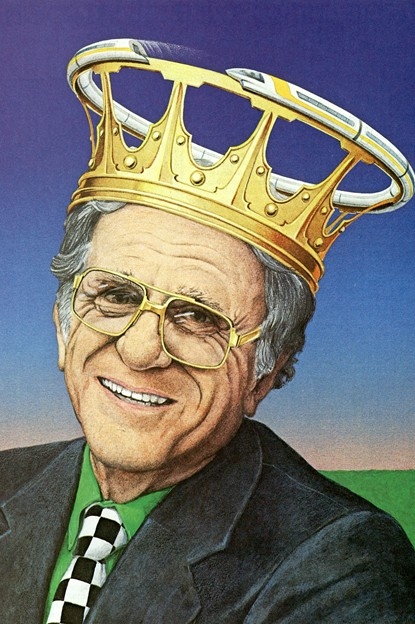
Would you believe that Dwaine Caraway isn’t the most colorful character to have ever served on the Dallas City Council? Sure, what with his football-fanatic friends Arthur and Archie, his handing a key to the city to an animal-abusing athlete, proposing a canal be dug through downtown Dallas, and posing for photos with a million condoms, he makes a strong case for the title.
But what if I told you this great city of ours once nearly elected mayor a man who proposed buying a helicopter with a big magnet on it that could lift wrecked or stalled vehicles from the road to make traffic run more smoothly? This same fellow also wanted the police department to hire an “elite group of crime fighters” who’d wear suits and “Lyndon Johnson-like Stetsons.” He thought municipal vehicles should be converted to run on methane gas from the city’s sewage-treatment plants. And he favored scraping Dallas Area Rapid Transit (which was in its infancy) in favor of building a monorail, years before similar projects put North Haverbrook and Ogdenville on the map.
His name was Max Goldblatt. He owned a hardware store in Pleasant Grove and first ran for a place on the council in 1967, when the Citizens Charter Association was still appointing its chosen members each election. Voters citywide had a say in choosing the Place 3 seat Goldblatt sought. He lost to the CCA’s candidate, even though he had won the most votes from his own district. He considered this unfair and filed a lawsuit to challenge the city’s at-large system. Nothing came of it, but in 1975 a similar suit forced was successful in forcing Dallas to adopt single-member districts.
It was 1980 when Goldblatt finally won a council seat, serving for three terms. In 1985, he decided to challenge incumbent Mayor Starke Taylor, and that campaign is the subject of a Skip Hollandsworth story that we’ve decided to recognize as one of the 40 greatest in D Magazine’s history. Read the whole thing.
Spoiler Alert: Goldblatt lost, but he performed far better against the business community’s favored candidate than most people expected. A recount determined that Taylor took 50.61 of the vote, just enough to avoid a runoff against Goldblatt, who boasted 45.56 percent. The New York Times took note of the election’s significance:
Mr. Goldblatt was clearly enjoying the excitement generated by his strong showing. ”You’d think I was part of J. R. Ewing’s outfit or something,” he said. ”Everyone wants to shake my hand.”
The election was perhaps too quirky to be read as any kind of definitive comment on politics in Dallas, the nation’s seventh largest city. But the unexpected strength of Mr. Goldblatt’s long-shot candidacy may have provided a glimpse of changes under way in a place where the business community has kept a hold on power.
In November 1985, at age 74, Goldblatt retired and closed his hardware store at 8022 Traders Village Place after 40 years in business. Twice he ran for county judge, in 1986 and 1990, losing both times to Lee Jackson.
He died in December 1995, with the Morning News editorializing that “Dallas will miss his ideas and candor,” and with the city still (sadly) without a monorail.




